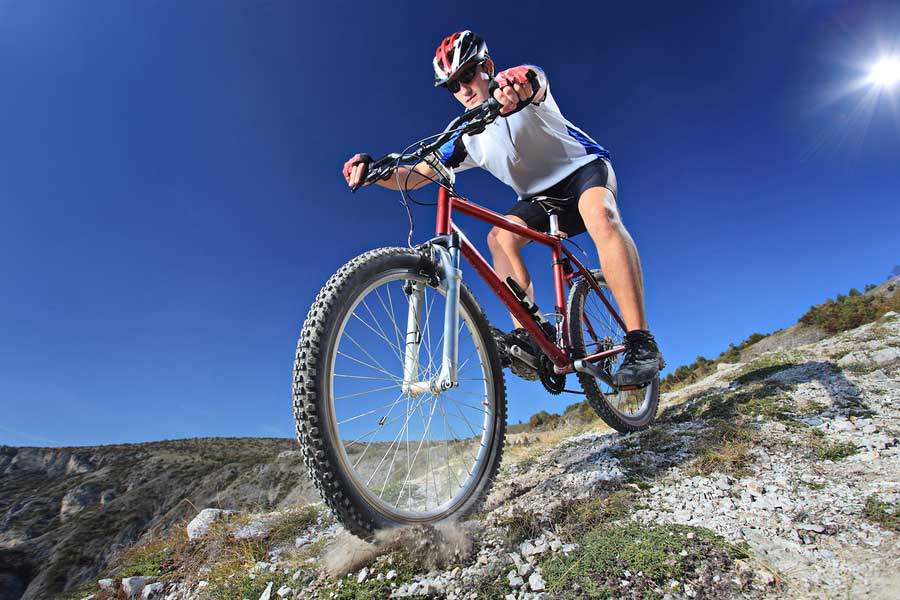Pursuing your passion while keeping your life in balance.
What sport would you pursue as a professional if you could? Mine would be cycling. I especially love long, endurance mountain bike races, which means more than just one long day of pushing yourself to the max, but months and weeks of intense training. So here it is–a sport lover’s dilemma – how can you partake in all your sport has to offer while maintaining relationships with family and friends?
Climbing Every Mountain
Many amateur athletes, including myself, have no shortage of events that offer the same challenges that professional athletes face. The demand for even more extreme races is growing. For example, cyclosportives–which are basically Tour de France caliber races for amateurs. Take for example, La Marmotte, a 110-mile “jaunt” which includes the infamous Alpe-de-Huez. Race journalist John Miller wrote about participating in this race for the Wall Street Journal. Many who complete a cyclosportive like La Marmotte, give up social life, family and a lot of serious money to compete.
The Cost of Winning
John Miller decided to tackle La Marmotte on a $1,200 Cannondale road bike. A drop in the bucket compared to the upwards from $10,000 that many spend on good road bikes. The road bike is only the beginning of equipment costs, however. A race participant will need the following as well:
-
pedals and shoes
-
high-tech clothes and helmet
-
computers to track not only speed, but heart rate to train properly
-
the routine maintenance
-
designer nutrition
And don’t forget the extra money it costs to travel and do the race itself. This easily can tack on at least another $1000. And you might want to invest in experienced advice for conditioning yourself for such a race– such as hiring a professional coach.
Paying to Win
If winning is your motive, there are coaching systems that you can buy. Carmichael Training Services is one such system. You can choose from a range of their coaching programs, from the select coaching at $200 a month, to Platinum, which boasts of serving celebrities and professionals, at $1285 a month. Or, you might be able to train with Chris Carmichael himself. However, that involves an interview process to access, and most likely, an unlimited budget.
It Takes Time
Money is just the beginning. The time invested in your sport may in reality be a larger expense than the money you spend on your gear. The time invested in training and attending these kinds of events affects not only your free time, but also the amount of time you spend with your spouse and kids. Instead of supporting the important people in your life, your hobby requires their support. Your hobby may even cut into the time you spend pursuing your career.
I’ve done several endurance Mountain Bike Races, some up to 100 miles. Each race involves hours of training. Because of this, the commitment to race is not only mine, but that of my wife and children, too. In order to be able to balance my family, career and my passion I’ve found I have to train smarter, figuring out ways to make the most of my training time when I have it, but I’ve also had to find a little thing called BALANCE. What good is a life-giving activity, when it sucks the life out of everyone else around you?
Competing for the Joy of It
When training for La Marmotte, Miller promised that he would not give up his family, social or professional life for the race. But he also did not train to win–he trained for the joy of it. And this is what pursuing your sport of choice is all about. Something life-giving attracts you to this activity in the first place–something about your chosen sport activity makes you happy. When you start to train, and winning becomes the primary focus, the fun may get sucked right out of the activity, not only for you, but for your loved ones.
So pursuing your sport competitively in a healthy way takes three ingredients:
-
PERSPECTIVE. Remember if you get injured in your sport today, you can’t work tomorrow.
-
BALANCE. Remember what is really important in your life, and put those people first.
-
FUN. Improvements to your time and winning medals must be a side benefit, not the main focus of your participation.
These are probably words that you will never hear from your “coach” or other extreme sporting event promoters, which is why I decided to share some of my thoughts. I’m curious. What things have enabled you to keep a balance while ramping up your participation in semi-professional sporting events? Please share in the comments section below! Thanks.
By Devin DeBoer
co-owner of PT Solutions

